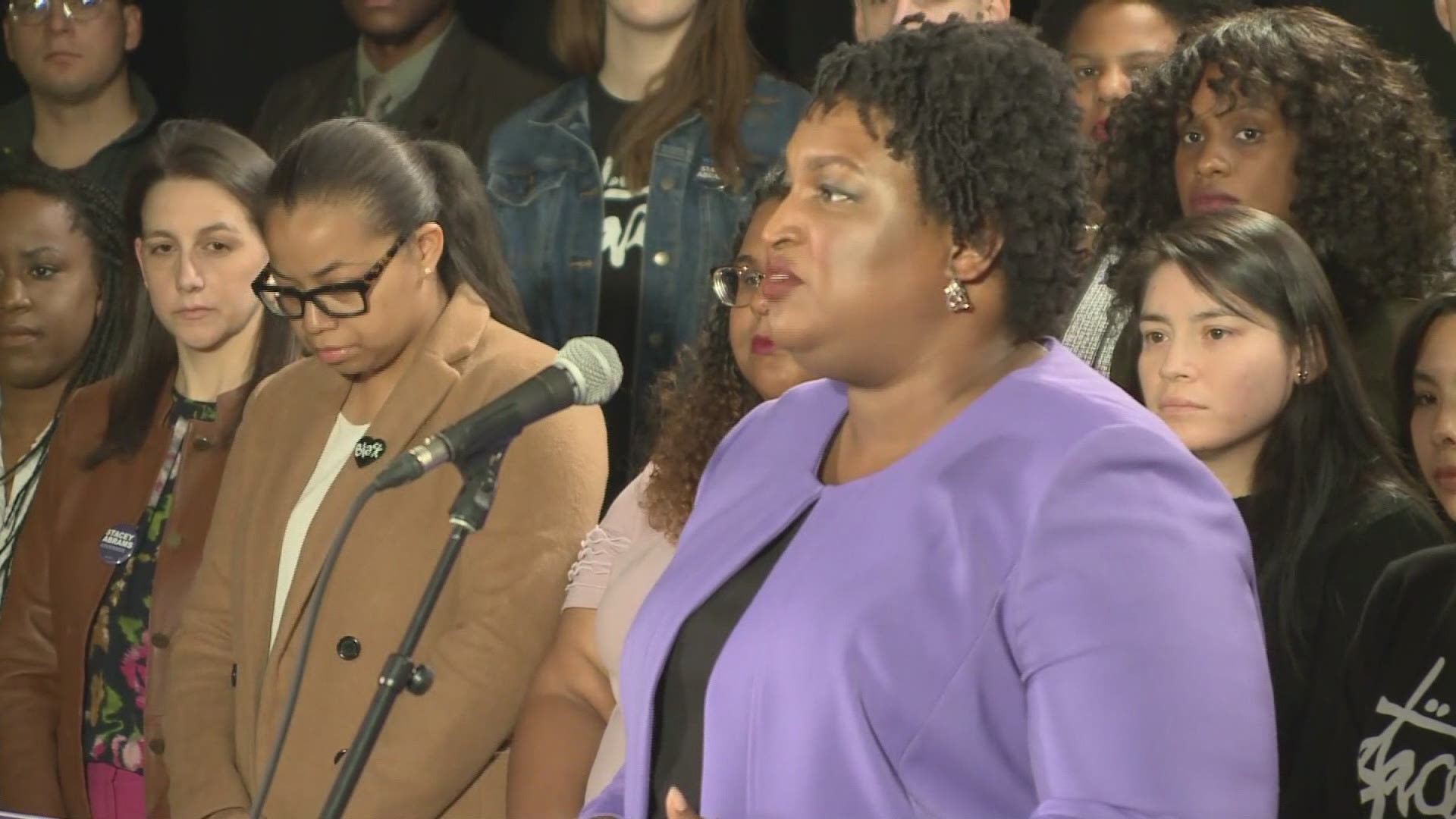Democrat Stacey Abrams, trailing Republican Brian Kemp in the race for Georgia governor, said Friday she was dropping plans to challenge results of what she described as a flawed election.
Abrams said she was not conceding the race, but she acknowledged that the state was poised to certify Kemp the winner, and she did not want to "scheme" her way into office.
She also said she would be filing a federal lawsuit over what she called the mismanagement of the vote – though not aimed at winning the race.
Abrams' legal team had been considering a longshot legal challenge among other legal options that could be filed once the results are certified.
But her announcement Friday effectively ended the bitterly fought race. The contest had been marked by claims of voter suppression and a host of lawsuits filed by Abrams and her supporters.
The Georgia Secretary of State's office still has not certified the results of the election. The Republican declared himself the winner last week, resigned as secretary of state and named a transition team.
Kemp, 55, a home builder and developer before he entered politics, has served as a state legislator and secretary of state. He vowed during the campaign to support small businesses, protect rural hospitals, raise teacher pay, defend gun rights and stop sanctuary policies for undocumented immigrants.
As Georgia's secretary of state from 2010 until last week, he took credit for record voter turnout and registration across all demographic groups and for a new online voter registration website.
Abrams, 44, became a rising national star running strong as a liberal in a red state. She promised to improve public schools, strengthen gun control, expand Medicaid and generate jobs through investment in small businesses.
The Yale-trained lawyer was the first African-American to serve as minority leader in the Georgia House of Representatives, and the first woman to lead either party in the General Assembly. She was trying to become the first African-American woman governor in the nation.
During the campaign, Abrams and her supporters accused Kemp of trying to suppress the Democratic vote as secretary of state by removing voters from the state rolls. Kemp’s office said it was investigating the state Democratic Party for what it called a "failed attempt to hack the state's voter registration system."
After the election, Abrams managed a pair of wins in court that have led to hundreds of rejected ballots being counted – but not enough to force a runoff or recount.
U.S. District Judge Amy Totenberg ordered election officials to provide reports explaining why each voter was required to cast a provisional ballot, and to establish a hotline or website where voters could determine whether their provisional ballot was counted.
U.S. District Judge Steve Jones ruled that the state could not certify the election until absentee ballots rejected for missing or incorrect birth dates were counted.
The longshot challenge Abrams was considering Friday, first reported by the Associated Press, would have been based on a provision of Georgia election law that allows losing candidates to challenge results based on “misconduct, fraud or irregularities … sufficient to change or place in doubt the results.”
Abrams would have need to prove that there had been enough irregularities to raise the possibility that at least 18,000 eligible voters had their ballots rejected or were not allowed to vote.

